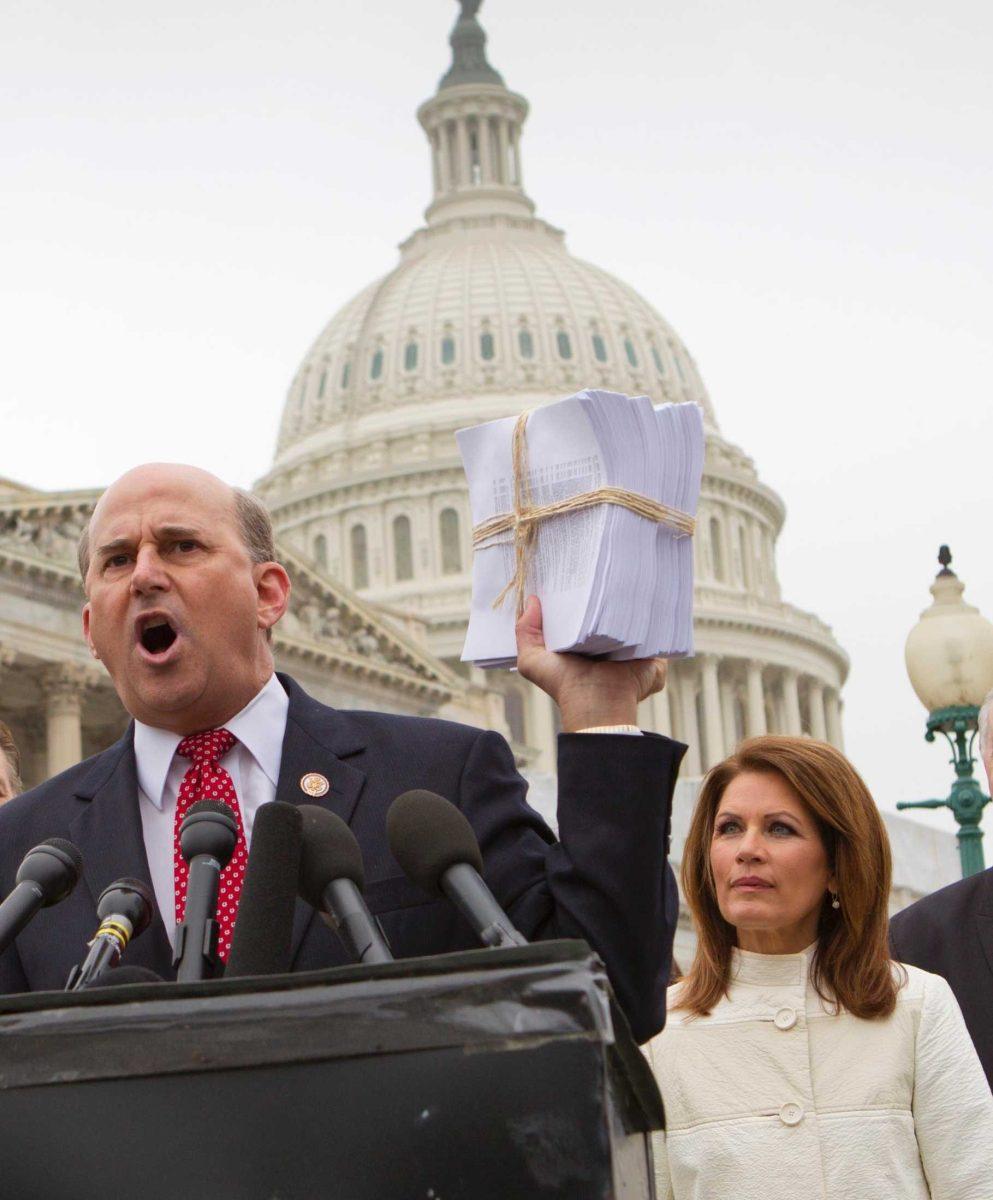As the Supreme Court concludes its hearings on the Affordable Care Act today, local business owners and students are weighing in on the decision-making.
“The big fight is whether or not Congress exceeded its authority when it passed the ACA – that’s a question of constitutional law,” said Paul M. Hebert Law Center professor Paul Baier.
Douglas Meek, civil engineering sophomore, said he hopes the Supreme Court makes a fair decision, but he’s opposed to the health-care reform.
“It’s unconstitutional to make people pay a penalty for not purchasing something,” Meek said.
Mary Black, owner of the UPS Store at Citiplace, said her business hasn’t been heavily affected by the health care law since her employees are all college students working part-time.
Before the act, she said she offered a health care plan to her employees, but no one could afford it. Now her student employees are able to stay covered by their parents’ insurance plans.
Maude Valera, owner of child care service KidUtopia in New Orleans, said she’s at risk because she doesn’t have health insurance, but she is in favor of health-care reform.
Valera said she experiences a peace of mind knowing she won’t be discriminated against based on her pre-existing conditions when she is able to afford health insurance.
In a prepared statement, Robin Mayhall, corporate communications senior writer for Blue Cross and Blue Shield of Louisiana, said the organization’s analysts are paying close attention to the Supreme Court hearings.
Mayhall said although the organization doesn’t agree with every provision of the ACA, it has participated “in good faith to help make it work.”
Blue Cross and Blue Shield has worked to comply with the ACA since it was passed, but it’s been a challenge because there have been 178 new regulations issued since its implementation, Mayhall said.
Mayhall said the effects of the ACA on insurance providers are massive and difficult to quantify.
“If the ACA survives the Supreme Court challenge and reaches 2014 essentially unchanged, the insurance marketplace will again change very drastically,” Mayhall said. “You might say we’ve been playing baseball since 1934, and starting Jan. 1, 2014, we’ll be required to start playing football.”
Baier said he predicts the Supreme Court will decide to sustain the law in a 5-4 vote.
—-
Contact Emily Herrington at [email protected].
Locals weigh in as Supreme Court revisits Affordable Care Act
March 28, 2012
Rep. Louie Gohmert, R-Texas (left), holds up a copy of the Patient Protection and Affordable Care Act on March 21 on Capitol Hill.





